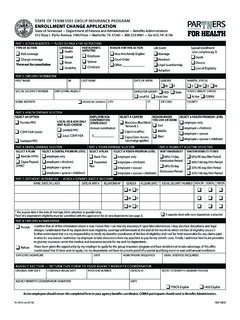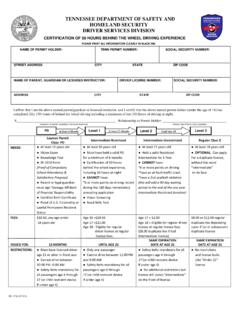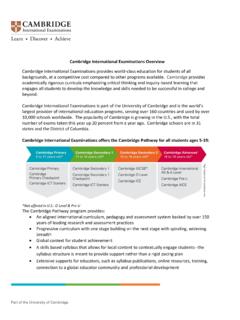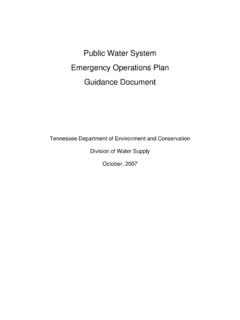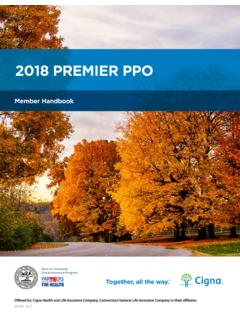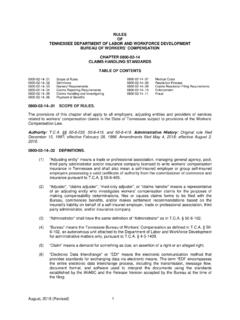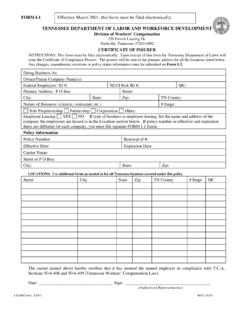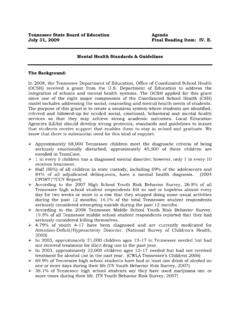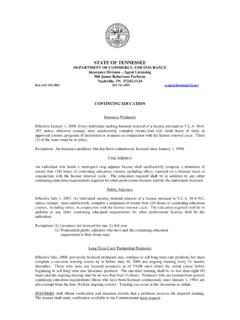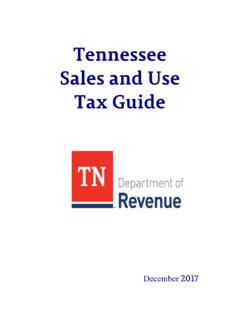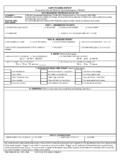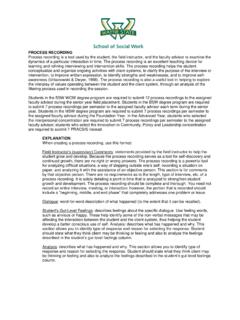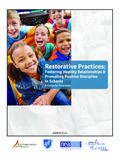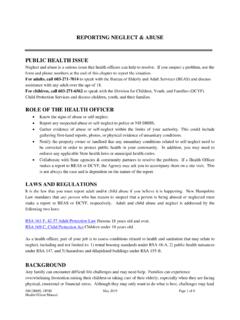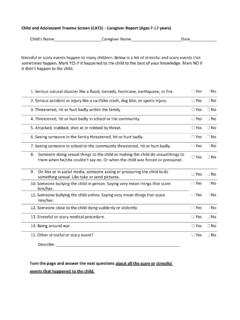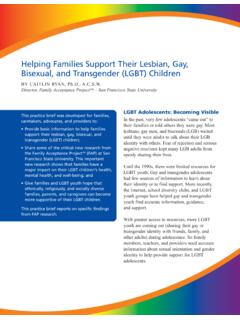Transcription of Pediatric Symptom Checklist (PSC), PSC-Y, and PSC-17 ...
1 EchappellTDMHSASR esearchTeam 02/25/2013 Page | 436 Pediatric Symptom Checklist (PSC), PSC-Y, and PSC-17 English and Spanish Versions echappellTDMHSASR esearchTeam 02/25/2013 Page | 437 Pediatric Symptom Checklist (PSC) Emotional and physical health go together in children. Because parents are often the first to notice a problem with their child s behavior, emotions, or learning, you may help your child get the best care possible by answering these questions. Please indicate which statement best describes your child. Please mark under the heading that best describes your child: Never (0) Sometimes(1)Often (2)1. Complains of aches and pains 1 ___ ___ ___ 2. Spends more time alone 2 ___ ___ ___ 3. Tires easily, has little energy 3 ___ ___ ___ 4.
2 Fidgety, unable to sit still 4 ___ ___ ___ 5. Has trouble with teacher 5 ___ ___ ___ 6. Less interested in school 6 ___ ___ ___ 7. Acts as if driven by a motor 7 ___ ___ ___ 8. Daydreams too much 8 ___ ___ ___ 9. Distracted easily 9 ___ ___ ___ 10. Is afraid of new situations 10 ___ ___ ___ 11. Feels sad, unhappy 11 ___ ___ ___ 12. Is irritable, angry 12 ___ ___ ___ 13. Feels hopeless 13 ___ ___ ___ 14. Has trouble concentrating 14 ___ ___ ___ 15. Less interested in friends 15 ___ ___ ___ 16. Fights with other children 16 ___ ___ ___ 17. Absent from school 17___ ___ ___ 18.
3 School grades dropping 18 ___ ___ ___ 19. Is down on him or herself 19___ ___ ___ 20. Visits the doctor with doctor finding nothing wrong 20 ___ ___ ___ 21. Has trouble sleeping 21 ___ ___ ___ 22. Worries a lot 22 ___ ___ ___ 23. Wants to be with you more than before 23 ___ ___ ___ 24. Feels he or she is bad 24 ___ ___ ___ 25. Takes unnecessary risks 25 ___ ___ ___ 26. Gets hurt frequently 26___ ___ ___ 27. Seems to be having less fun 27 ___ ___ ___ 28. Acts younger than children his or her age 28 ___ ___ ___ echappellTDMHSASR esearchTeam 02/25/2013 Page | 438 Never (0) Sometimes(1)Often (2)29.
4 Does not listen to rules 29 ___ ___ ___ 30. Does not show feelings 30 ___ ___ ___ 31. Does not understand other people s feelings 31 ___ ___ ___ 32. Teases others 32 ___ ___ ___ 33. Blames others for his or her troubles 33 ___ ___ ___ 34. Takes things that do not belong to him or her 34 ___ ___ ___ 35. Refuses to share 35 ___ ___ ___ Total Score _____ Does your child have any emotional or behavioral problems for which she or he needs help? Are there any services that you would like your child to receive for these problems? ( ) N ( ) N ( ) Y ( ) Y If yes, what services? _____ *The tool above is reprinted with permission.
5 It was copyrighted in 2006 by Michael Jellinek, MD, & J. Michael Murphy, EdD. echappellTDMHSASR esearchTeam 02/25/2013 Page | 439 PSC Spanish Completado por: (por avor circule uno) Padres / Pariente / Guardi n / Paciente (Parent / Relative / Gaurdian / Self) LISTA DE S NTOMAS PEDI TRICOS Pediatric Symptom Checklist (PSC) Indique cual s ntoma mejor describe a su hijo: Please mark under the heading that best describes your child: NUNCA Never (0) A VECESS ometimes(1) SEGUIDOO ften (2) 1. Se queja de dolores y malestares (Complains of aches and pains) 2. Pasa mucho tiempo solo (Spends more time alone) 3. Se cansa f cilmente, tiene poca energ a (Tires easily, has little energy) 4. Es inquieto (Fidgety, unable to sit still) 5. Tiene problemas con maestros (Has trouble with teacher) 6.
6 Menos interesado(a) en la escuela (Less interested in school) 7. Es muy activo(a), tiene mucha energ a (Acts as if driven by a motor) 8. Es muy so ador(a) (Daydreams too much) 9. Se distrae f cilmente (Distracted easily) 10. Temeroso(a) de nuevas situaci nes (Is afraid of new situations) 11. Se siente triste, infeliz (Feels sad, unhappy) 12. Es irritable, enoj n (Is irritable, angry) 13. Se siente sin esperanzas (Feels hopeless) 14. Tiene problemas para concentrarse (Has trouble concentrating) 15. Est menos interesado(a) en sus amistades (Less interested in friends) 16. Pelea con otros ni os(as) (Fights with other children) 17. Se ausenta de la escuela (Absent from school) 18. Sus notas escolares est n bajando (School grades dropping) 19. Se critica a si mismo(a) (Is down on him or herself) 20.
7 Visita al doctor y el doctor no le encuentra nada malo (Visits the doctor with doctor finding nothing 21. Tiene problemas para dormir (Has trouble sleeping) 22. Se preocupa mucho (Worries a lot) 23. Quiere estar con usted m s que antes (Wants to be with you more than before) 24. Se siente que l/ella es malo(a) (Feels he or she is bad) 25. Toma riezgos innecesarios (Takes unnecessary risks) 26. Se lastima facilmente/frecuentemente (Gets hurt frequently) 27. Parece divertise menos (Seems to be having less fun) 28. Act a m s chico que ni os de su propia edad (Acts younger than children his or her age) 29. No obedece reglas (Does not listen to rules) 30. No demuestra sus sentimientos (Does not show feelings ) 31. No comprende los sentimientos de otros (Does not understand other people s feelings ) 32.)
8 Molesta a otros (Teases others) 33. Culpa a otros por sus problemas (Blames other for his or her troubles) 34. Toma cosas que no le pertenecen (Takes things that do not belong to him or her) 35. Se rehusa a compartir (Refuses to share) Total Score _____ 36. Su hijo tiene algun problema emocional, o de comportamiento, para el cual necesita ayuda? No S Does your child have any emotional or behavioral problems for which she/he needs help? 37. De momento, su hijo se est consultando con un profesional de salud mental? No S Is your child currently seeing a mental health counselor? . * La herramienta anterior es reimpreso con permiso. Fue registrado en 2006 por Michael Jellinek, MD & J. Michael Murphy, EdD. echappellTDMHSASR esearchTeam 02/25/2013 Page | 440 Pediatric Symptom Checklist Youth Report (Y-PSC) Please mark under the heading that best fits you: Never (0) Sometimes (1) Often (2) 1.
9 Complain of aches and pains 1 2. Spend more time alone 2 3. Tire easily, little energy 3 4. Fidgety, unable to sit still 4 5. Have trouble with teacher 5 6. Less interested in school 6 7. Act as if driven by a motor 7 8. Daydream too much 8 9. Distract easily 9 10. Are afraid of new situations 10 11. Feel sad, unhappy 11 12. Are irritable, angry 12 13. Feel hopeless 13 14. Have trouble concentrating 14 15. Less interested in friends 15 16. Fight with other children 16 17. Absent from school 17 18. School grades dropping 18 19. Down on yourself 19 20. Visit doctor with doctor finding nothing wrong 20 21. Have trouble sleeping 21 22. Worry a lot 22 23. Want to be with parent more than before 23 24. Feel that you are bad 24 25.
10 Take unnecessary risks 25 26. Get hurt frequently 26 27. Seem to be having less fun 27 28. Act younger than children your age 28 29. Do not listen to rules 29 30. Do not show feelings 30 31. Do not understand other people s feelings 31 32. Tease others 32 33. Blame others for your troubles 33 34. Take things that do not belong to you 34 35. Refuse to share 35 Total score _____ *The tool above is reprinted with permission. It was copyrighted in 2006 by Michael Jellinek, MD, & J. Michael Murphy, EdD. echappellTDMHSASR esearchTeam 02/25/2013 Page | 441 CUESTIONARIO (PSC-Y) La salud fisica y emocional van juntas. Usted pueda ayudar al doctor/a a obtener el mejor servicio posible, contestando unas pocas preguntas acerca de usted. La informacion que nos de es parte de la visita de hov.
